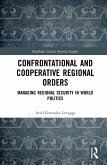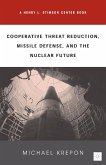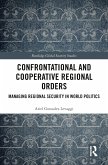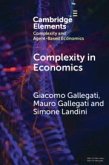Over the course of the twentieth century, states engaged in cooperation through international organizations at unprecedented levels. However, the twenty-first century has featured the emergence of next-level forms of cooperation: international organizations working together. This pattern is especially apparent among economic international organizations, which often pool resources and expertise to jointly implement programs in member state territories. Cooperative Complexity argues that such cooperation is politically efficient but not necessarily economically efficient; it helps geopolitically aligned organizations enforce their preferred policies but can drive inefficient economic outcomes. Combining a general theoretical model with quantitative, qualitative, and experimental research designs, this book disentangles the complex ties that connect international organizations. In doing so, it reveals how a deeper understanding of the supply side of international finance is critical for gaining insights about the form, effectiveness, and likely future of global economic governance.
Bitte wählen Sie Ihr Anliegen aus.
Rechnungen
Retourenschein anfordern
Bestellstatus
Storno









